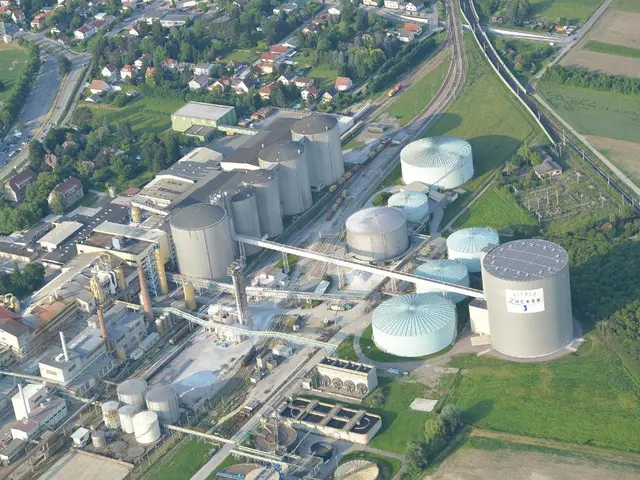Ditching fossil fuels? Oil giants got a different plan
The COP28 climate summit in Dubai wrapped up with an agreement on Wednesday, marking a record pledge for countries to break from carbon-intensive sources of energy. But some critics pointed out that the agreement fell short of compelling nations to abandon oil, gas, and coal, a goal supported by over a hundred countries.
"The resolution leaves loopholes that the fossil fuel industry can exploit," said Harjit Singh, head of global political strategy at Climate Action Network International.
Regardless of how vague or weak the language, the deal seems out of touch with reality.
In the United States, oil production hit record highs; India plans to double its coal production by 2030; the UK issued new offshore drilling permits in the North Sea; U.S. oil giants dropped billions on deals that indicate they'll remain in high demand for decades to come.
"Without a systemic transformation of the fossil fuel industry, it won't be compatible with the COP28 agreement," said Daniel Klier, CEO of ESG Book, a provider of sustainability data for companies. "No climate summit can single-handedly drive the transition away from fossil fuels, let alone the exit from them."
Occidental Petroleum Corp. announced Monday it would pay $12 billion in cash and stock to acquire the U.S. shale oil producer CrownRock, the latest evidence that the industry is doubling down on fossil fuels.
This follows Occidental's announcement in October that it would buy shale oil producer Pioneer Natural Resources for $60 billion. And just two weeks later, Chevron agreed to buy shale oil producer Hess for $53 billion. Hess has significant oil reserves in Guyana, which Chevron says will contribute to its production growth in the coming decades.
Another major oil and gas deal worth $50 billion could soon take shape in Australia, as Woodside Energy and Santos discuss merging to form one of the world's largest exporters of liquefied natural gas (LNG).
"The market is dysfunctional and rewards the wrong companies," Klier said. "If at all, our future depends on a market that rewards oil companies that decarbonize fast."
Despite the financial might of oil majors, they've been using their recent windfalls to buy cheap assets and boost shareholder returns, while reducing investments in renewable energy.
According to the International Energy Agency (IEA), the industry invested just $20 billion in renewable energy projects last year, representing only about 2.5% of its total investments.
The IEA said that figure should rise to 50% by 2030 to cap global warming to 1.5 degrees Celsius above pre-industrial levels – a threshold critical to avoiding catastrophic climate change, including more severe droughts, floods, wildfires, and food shortages.
The COP28's optimism has been dampened by a flurry of new deals, raising doubts that fossil fuel companies are willing to reassess their spending.
"Given the impacts of an intensifying climate crisis, it would be socially and ecologically irresponsible to continue as we have," IEA Executive Director Fatih Birol said last month before the summit. "The oil and gas industry is standing before a critical moment at COP28 in Dubai."
Birol struck a more hopeful tone on Wednesday. "I congratulate the #COP28 presidency and the countries for this significant result, which makes the goal of phase-out for fossil fuels in line with 1.5 degrees Celsius clarity," he wrote on Twitter.
Privately, however, the IEA declined CNN's request for comment on how the agreement compared to real-world developments, citing a contradiction to its earlier calls to halt all new investments in oil and gas projects.
The world remains far off track from meeting its climate goals, with the IEA predicting that the world's demand for oil, gas, and coal will peak by 2030.
Even European oil giants like Shell and BP, which boast better track records on renewable energy investments than their American counterparts, continue to pour millions into fossil fuels.
In January, BP abandoned the climate targets it set three years ago and scaled back ambitious plans to reduce its carbon emissions and oil and gas production.








